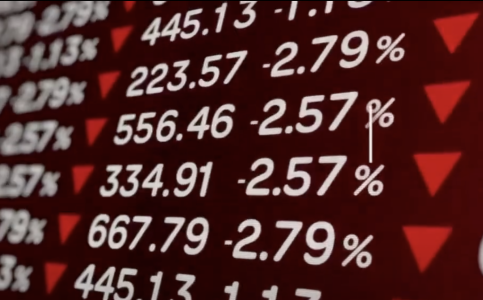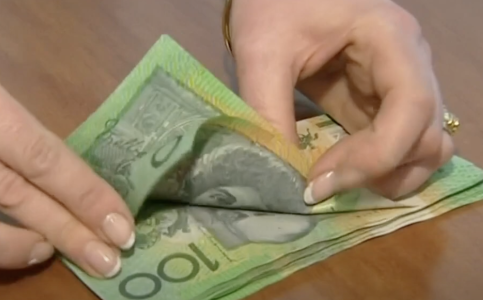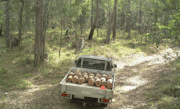A $25 billion loss on the ASX—Is your retirement fund affected?
- Replies 0
If you’ve checked your superannuation balance lately and felt your heart skip a beat, you’re not alone.
The recent $25 billion plunge on the Australian share market (ASX) has left many Aussies—especially those of us planning for or enjoying retirement—wondering what on earth is going on, and more importantly, what it means for our hard-earned nest eggs.
Let’s break down what’s happened, why it’s happening, and what you should (and shouldn’t) do next.
What’s Behind the Market Mayhem?
The latest market turmoil was triggered by escalating tensions between the US and Iran, after American stealth bombers targeted nuclear sites in Iran over the weekend.
As is often the case, global conflict sends shockwaves through financial markets. Investors get jittery, and many rush to sell off their assets, causing share prices to tumble.
On Monday, the ASX 200 dropped by 44.3 points (about 0.52%), wiping a staggering $25 billion off the market by lunchtime. And it’s not just Australia—U.S. futures markets are also bracing for a rocky ride.

Why Does This Affect My Super?
Most superannuation funds invest heavily in both Australian and international shares. When the share market takes a hit, so does your super balance—at least in the short term.
Jessica Amir, a market strategist at MooMoo Australia, warns that we could see some wild swings in super accounts over the coming days, especially as many funds are heavily exposed to both the Australian and US markets.
‘It's usually every quarter, but the biggest one is the end of the financial year because it's all about tax minimisation,’ Amir said. ‘And tax loss selling is something that we see, which is basically when a super fund might look to sell the stocks that have done badly during the financial year and claim them as a tax write-off against stocks that have gone up over the year.’
In earlier news: Has your superannuation suffered over the past month? Here's what finance experts have to say
With rising tensions in Iran and the potential for the US central bank to cut interest rates next month, market volatility has spiked.
According to Amir, who spoke to Yahoo Finance, July is usually a strong month for the Australian share market.
'Investment managers chuck all their money back into the share market [in July],' she explained, 'and they're getting ready for the new financial year, and so they're buying those stocks that they think will be growing their earnings.'
She also noted that expected interest rate cuts would likely support consumer spending on stocks: 'Also interest rates are expected to be cut, which benefits consumer spending on stocks.'

Should I Panic?
In a word: no. While it’s unsettling to see your super balance drop, history shows that markets recover from shocks—even those caused by war or global crises.
While war typically rattles sharemarkets, history shows they often bounce back sharply after initial sell-offs.
Amir said, 'After every pullback, the Aussie market and the US market have always recovered.'
This view was echoed by financial advisor Alex Jamieson, founder of AJ Financial Planning.
'History tells us that markets can respond in surprising ways and certain sectors can thrive,' he said.
He pointed to past examples: 'During World War II, US industrial production surged and equity markets steadily rose after the initial shock. In the wake of the Gulf War in 1990, markets initially fell on uncertainty but rebounded strongly once military action commenced and oil supplies stabilised.'
Jamieson also noted similar trends during the Russian-Ukrainian conflict, where oil, gas, defence and agricultural companies performed strongly, even as tech stocks declined.
'While conflict creates volatility, it also fuels certain parts of the economy,' he added. 'For super fund members, this means your balance could actually benefit if your fund is exposed to the right areas, such as energy, commodities, infrastructure and defence.'
What About Petrol and Grocery Prices?
Unfortunately, the impact of global conflict isn’t limited to your super. The U.S. has asked China to help keep the Strait of Hormuz open, a vital shipping route that connects the Persian Gulf with the Arabian Sea. In 2024, roughly 20 million barrels of oil passed through it each day, according to the Energy Information Administration.
Source: Mark Tilbury / Youtube.
Any disruption to that route could trigger a steep rise in oil prices. Brent crude is already trading in the high US$70s, but experts fear it could climb to over US$100 per barrel.
'It means we're paying higher prices when we fill up,' Amir told Yahoo Finance.
'Even if you're filling up your Tesla or your BYD or whatever, much of Australia's energy grid is actually powered by fossil fuels, so everything will be passed back to the consumer.'
She also warned that higher fuel costs would drive up freight charges—meaning supermarkets may start raising their prices to cover the difference.
Read next: Petrol price hits $2 mark as Middle East conflict drives global oil surge

Have you noticed changes in your super balance? Are you worried about rising costs at the petrol station or supermarket? Or do you have tips for weathering financial storms? Share your thoughts and experiences in the comments below!
The recent $25 billion plunge on the Australian share market (ASX) has left many Aussies—especially those of us planning for or enjoying retirement—wondering what on earth is going on, and more importantly, what it means for our hard-earned nest eggs.
Let’s break down what’s happened, why it’s happening, and what you should (and shouldn’t) do next.
What’s Behind the Market Mayhem?
The latest market turmoil was triggered by escalating tensions between the US and Iran, after American stealth bombers targeted nuclear sites in Iran over the weekend.
As is often the case, global conflict sends shockwaves through financial markets. Investors get jittery, and many rush to sell off their assets, causing share prices to tumble.
On Monday, the ASX 200 dropped by 44.3 points (about 0.52%), wiping a staggering $25 billion off the market by lunchtime. And it’s not just Australia—U.S. futures markets are also bracing for a rocky ride.

Australians are being urged not to panic if their superannuation balances drop, as recent US attacks on Iran have triggered major sharemarket volatility, wiping $25 billion from the ASX in just one day. Image source: 10 News First / Youtube.
Why Does This Affect My Super?
Most superannuation funds invest heavily in both Australian and international shares. When the share market takes a hit, so does your super balance—at least in the short term.
Jessica Amir, a market strategist at MooMoo Australia, warns that we could see some wild swings in super accounts over the coming days, especially as many funds are heavily exposed to both the Australian and US markets.
‘It's usually every quarter, but the biggest one is the end of the financial year because it's all about tax minimisation,’ Amir said. ‘And tax loss selling is something that we see, which is basically when a super fund might look to sell the stocks that have done badly during the financial year and claim them as a tax write-off against stocks that have gone up over the year.’
In earlier news: Has your superannuation suffered over the past month? Here's what finance experts have to say
With rising tensions in Iran and the potential for the US central bank to cut interest rates next month, market volatility has spiked.
According to Amir, who spoke to Yahoo Finance, July is usually a strong month for the Australian share market.
'Investment managers chuck all their money back into the share market [in July],' she explained, 'and they're getting ready for the new financial year, and so they're buying those stocks that they think will be growing their earnings.'
She also noted that expected interest rate cuts would likely support consumer spending on stocks: 'Also interest rates are expected to be cut, which benefits consumer spending on stocks.'

Experts warn that wild swings in superannuation accounts are likely in coming days, especially as super funds readjust investments before the end of the financial year and engage in tax-loss selling. Image source: 10 News First / Youtube.
Should I Panic?
In a word: no. While it’s unsettling to see your super balance drop, history shows that markets recover from shocks—even those caused by war or global crises.
While war typically rattles sharemarkets, history shows they often bounce back sharply after initial sell-offs.
Amir said, 'After every pullback, the Aussie market and the US market have always recovered.'
This view was echoed by financial advisor Alex Jamieson, founder of AJ Financial Planning.
'History tells us that markets can respond in surprising ways and certain sectors can thrive,' he said.
He pointed to past examples: 'During World War II, US industrial production surged and equity markets steadily rose after the initial shock. In the wake of the Gulf War in 1990, markets initially fell on uncertainty but rebounded strongly once military action commenced and oil supplies stabilised.'
Jamieson also noted similar trends during the Russian-Ukrainian conflict, where oil, gas, defence and agricultural companies performed strongly, even as tech stocks declined.
'While conflict creates volatility, it also fuels certain parts of the economy,' he added. 'For super fund members, this means your balance could actually benefit if your fund is exposed to the right areas, such as energy, commodities, infrastructure and defence.'
What About Petrol and Grocery Prices?
Unfortunately, the impact of global conflict isn’t limited to your super. The U.S. has asked China to help keep the Strait of Hormuz open, a vital shipping route that connects the Persian Gulf with the Arabian Sea. In 2024, roughly 20 million barrels of oil passed through it each day, according to the Energy Information Administration.
Source: Mark Tilbury / Youtube.
Any disruption to that route could trigger a steep rise in oil prices. Brent crude is already trading in the high US$70s, but experts fear it could climb to over US$100 per barrel.
'It means we're paying higher prices when we fill up,' Amir told Yahoo Finance.
'Even if you're filling up your Tesla or your BYD or whatever, much of Australia's energy grid is actually powered by fossil fuels, so everything will be passed back to the consumer.'
She also warned that higher fuel costs would drive up freight charges—meaning supermarkets may start raising their prices to cover the difference.
Read next: Petrol price hits $2 mark as Middle East conflict drives global oil surge
Key Takeaways
- Australians are being urged not to panic if their superannuation balances drop, as recent US attacks on Iran have triggered major sharemarket volatility, wiping $25 billion from the ASX in just one day.
- Experts warn that wild swings in superannuation accounts are likely in coming days, especially as super funds readjust investments before the end of the financial year and engage in tax-loss selling.
- Historically, sharemarkets tend to bounce back after major sell-offs triggered by geopolitical tensions, and certain sectors such as energy, commodities, infrastructure, and defence may even benefit during conflicts.
- Rising tensions in the Middle East could push oil prices over US$100 a barrel, leading to higher petrol and freight costs in Australia, with flow-on effects set to increase supermarket prices for consumers.
Have you noticed changes in your super balance? Are you worried about rising costs at the petrol station or supermarket? Or do you have tips for weathering financial storms? Share your thoughts and experiences in the comments below!







